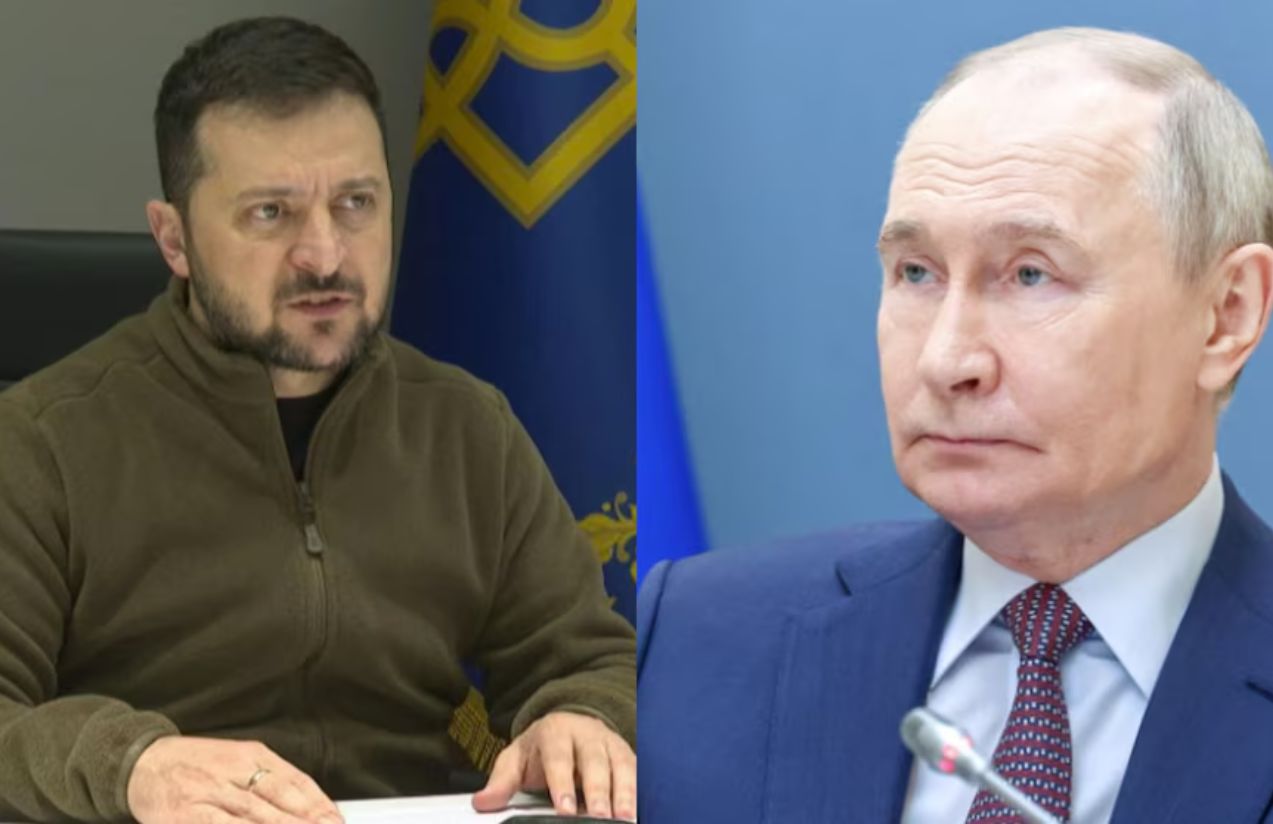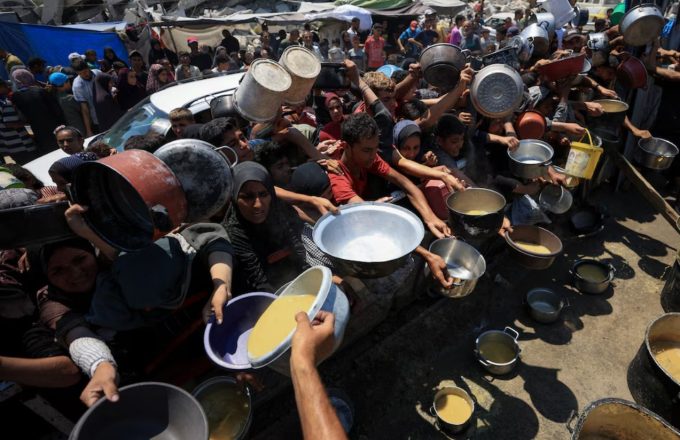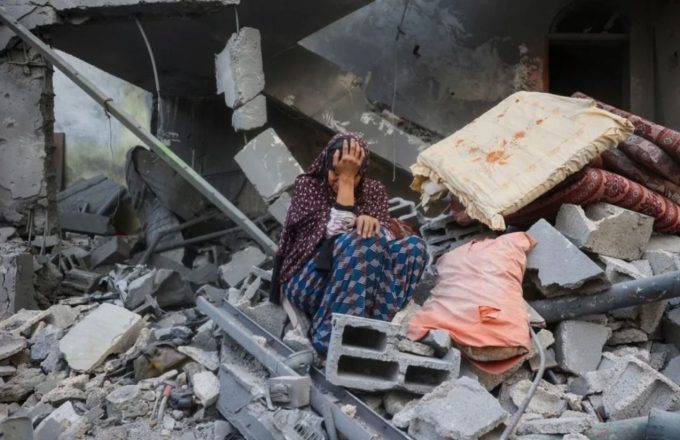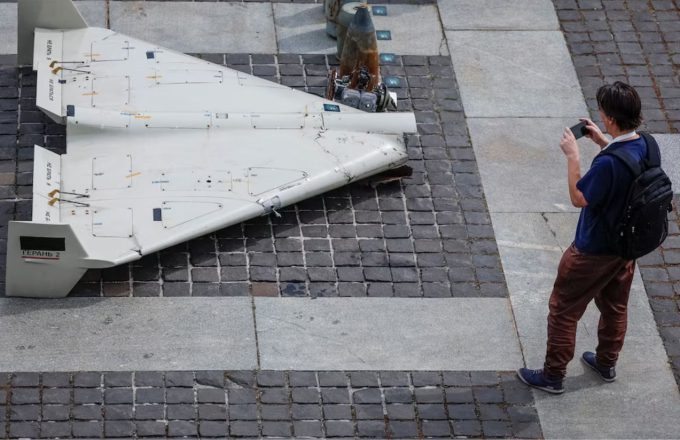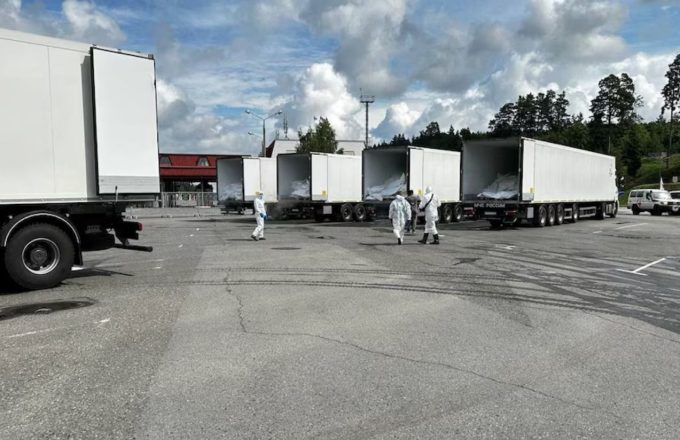Russian and Ukrainian delegations met in Istanbul on Monday for a new round of peace negotiations—the second in just over two weeks. However, expectations for meaningful progress were low following a weekend of large-scale attacks that intensified a war now entering its fourth year.
The Ukrainian delegation was led by Defense Minister Rustem Umerov, while Russia was represented by Vladimir Medinsky, an advisor to President Vladimir Putin, according to state media. Turkish Foreign Minister Hakan Fidan hosted the meeting at the historic Ciragan Palace and delivered the opening remarks.
Ahead of the talks, Ukrainian President Volodymyr Zelenskyy warned that if the Istanbul meeting produced no tangible results, “urgent and severe new sanctions” against Moscow would be necessary.
Global markets reflected the mounting tensions: Asian stock indexes fell, and oil prices surged amid growing concerns over the war’s global fallout and its impact on international trade.
Despite the renewed dialogue, both sides remain deeply divided on key terms for ending the conflict. On Sunday, a senior Ukrainian official revealed that Ukraine had launched an unprecedented strike on four Russian air bases thousands of kilometers away, destroying over 40 warplanes. The attack, which targeted facilities in the Arctic, Siberia, and Russia’s Far East, was hailed as a major blow to Moscow’s military power by Vasyl Maliuk, head of Ukraine’s security service. Carried out by drones across three time zones, the complex operation reportedly took over a year and a half to prepare.
In retaliation, Russia launched 472 drones against Ukraine on Sunday—the largest such barrage since the full-scale invasion began in February 2022—in what appeared to be an effort to overwhelm Ukrainian air defenses. The attacks, which mainly struck civilian areas, marked a recent escalation in Russia’s offensive campaign.
Amid the intensified fighting, hopes for any breakthrough in Istanbul were slim. U.S.-led efforts to broker a ceasefire have also failed. Ukraine backed the initiative, but the Kremlin effectively rejected it.
The Washington-based Institute for the Study of War warned Sunday night that Russia appears to be stalling negotiations in an effort to prolong the war and gain further ground on the battlefield.
Meanwhile, U.S. President Donald Trump, who had pledged to broker a swift end to the war, voiced his frustration over the lack of progress. Last week, as Russia bombarded Kyiv and other Ukrainian cities for a third consecutive night, Trump posted on social media that Putin had “gone absolutely CRAZY.”
The first round of talks, also held in Istanbul on May 16, lasted less than two hours. Although both sides agreed to a major prisoner exchange, no substantial progress was made.
Ukraine’s successful strike on distant Russian air bases received only muted coverage in Russian state media. On Sunday night, Russia’s Channel One devoted just over a minute to the story, airing a brief statement from the Defense Ministry before shifting focus to Russian drone attacks on Ukrainian positions.
Speaking from Vilnius, Lithuania—where he met with Nordic leaders and officials from NATO’s eastern flank—Zelenskyy said the Kremlin’s setbacks could force Putin to the negotiating table. “Russia must feel the cost of its losses. That’s what will push it toward diplomacy,” he said.
Ukraine has occasionally targeted Russian bases housing nuclear-capable strategic bombers since the start of the war, prompting Moscow to relocate many of them further from the front lines. But Sunday’s strike stood out for its scale and precision: drones were launched from trucks in at least five Russian regions, giving local defenses virtually no time to respond.
Russian military bloggers criticized the armed forces for failing to protect the bombers—despite earlier attacks—but acknowledged the difficulty of shielding such large aircraft. Phillips O’Brien, professor of strategic studies at the University of St. Andrews in Scotland, said the strike was “a major blow to Russia’s strategic air power” and exposed serious vulnerabilities in Moscow’s military defenses.


